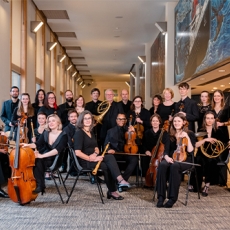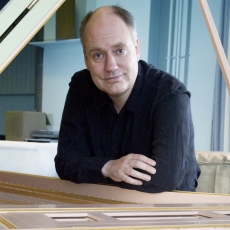Dunedin Consort - Monteverdi: Vespers 1610 - Stereophile
Performance: 4.5/5
Sonics: 5/5
As the old joke does not go, How do you get to the Papal Chapel? Audition, audition, audition. There you are, gifted and, for the early 1600s, relatively famous. You practically invented opera. You've worked for years at what seems a cushy job as the court composer to the Dukes of Gonzaga in Mantua, but you're underpaid, and feeling as if you need and deserve more. And so you self-publish, under the title Vespers 1610, a 90-minute collection—psalm settings, a motet, a hymn, a Magnificat—that highlights all of your compositional gifts. There are concertos, pieces for solo singers, choruses as intimate as one or two parts and as grand as ten, cornets, violins, unspecified instruments, echo effects designed to impress in a cathedral setting, and pieces that alternate between piety and theatrics. Sadly, the Papal Office in Rome turns you down, but you're offered the post of Maestro di Capella at the acoustically and architecturally glorious Basilica di San Marco, in Venice, where you remain until your death, in 1643.
Vespers 1610 was probably never heard in its entirety in Monteverdi's lifetime, and was never intended to be heard as a single work; it was, rather, a collection of showpieces composed both in the older, liturgical style and the newer, text-driven style. Little is known of how many voices and instruments were to be used—arrangers and conductors tend to add and subtract for their desired soundworld. There are now about 35 recordings available, and no two are exactly the same. The performance practices of early music have changed drastically in the last 50 years; scholars agree and disagree, playing and singing have become more expert and refined within the idiom, and some performances of Vespers 1610 now include plainchant, which should or would have been heard in a true vespers service. This new performance, exquisitely recorded, eschews additions; we get only the movements that appear in the score.
This music is so dramatically and piously in your face that it doesn't require a huge complement of singers and players. Conductor John Butt's lithe forces, the Dunedin Consort, comprise 20 instrumentalists and a small ensemble of vocalists, the latter never numbering more than the ten named soloists, and singing in different formations. That they're asked to declaim clearly and (when needed) forcefully lets us hear their individual voices, even as they let us hear Monteverdi's contrapuntal lines with great clarity. When the score calls for sheer tenderness, they fairly melt into the music, every subtlety heard and felt. And yet it's never precious. This remarkably honest reading balances the holy with the dazzling.
Extra brilliance is added by Butt's high tuning (A=466Hz); the performance glistens without ever becoming brittle. The colors of His Majestys Sagbutts & Cornetts, who appear on a few other recordings of the Vespers, shine more brightly at the higher pitch; the sopranos who chant "Sancta Maria, ora pro nobis" at uneven intervals over the instrumental Sonata sopra Sancta Maria sound angelic. We hear every note of the richly contrapuntal Laudate pueri, in which the high voices pop out from the texture with short notes as the lower voices riff; the operatic ornaments of Duo Seraphim are spotlessly executed by three tenors, who even manage the always weird-sounding trillo, a trill on a single note (sometimes called a goat trill). Many other conductors double the voices with a panoply of instruments; the effect may be grander, but it does away with the intimacy of the texts: Butt doubles voices only as indicated by Monteverdi in the score. Each section has its own temperature, and by slimming down the forces for clarity and to emphasize texture, there's a never a sense of sameness. The pure soprano in Pulchra es, accompanied only by theorbo, takes on a sensual flavor when a second soprano is added.
Monteverdi is the true bridge between the Renaissance and Baroque, and nowhere is this more true or evident than in these pieces. By turns simple and bizarrely complex, Vespers 1610 is a primer in "early music." And this performance, joyously free of eccentricities, interested only in the honest, beautiful expression of music and texts, is heavenly.


